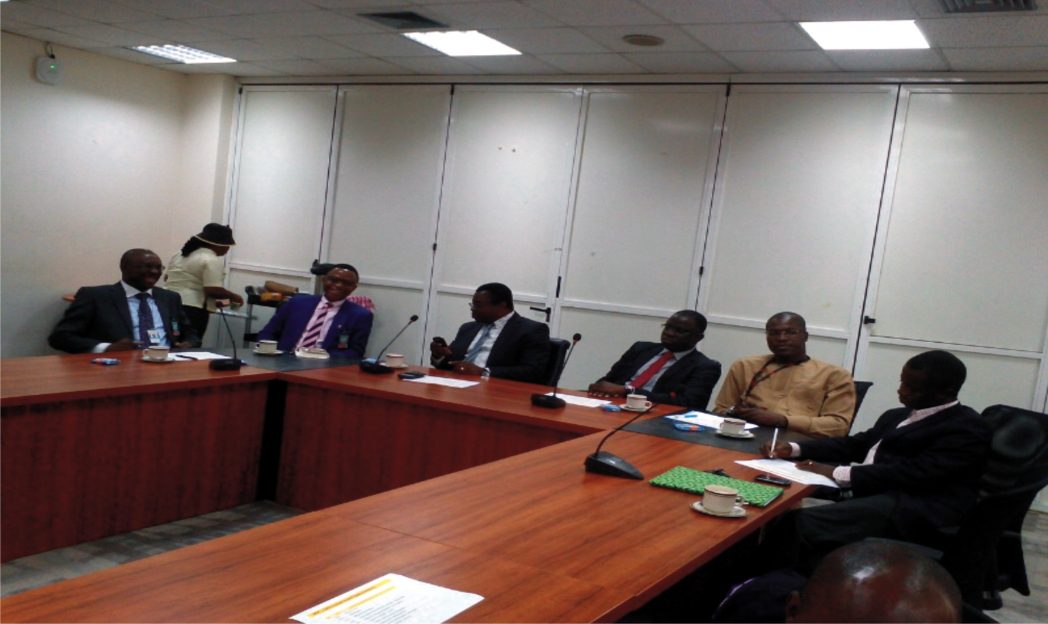Business
MWUN Protests Salary Disparity At APMT Terminal

The leadership of Maritime Workers Union of Nigeria (MWUN) has expressed worries over the disparity in salary and allowances between foreign personnel and Nigerian employees doing the same job at APMT Terminals Apapa.
In a statement signed by the President General and Secretary General, Comrades Adewale Adeyanju and Felix Akingboye respectively, the union expressed disappointment at the concessionaire’s penchant for disregarding Nigerian workers, noting that APMT has no iota of regard for the welfare of its employees.
The statement noted that MWUN should not be held liable in the event of distortion of industrial peace in the APMT Terminal.
This, the union said, was based on the low salaries and allowances being offered as negotiation, which it stated was far below the industry’s standard.
It recalled that a 7-day ultimatum was issued, which had expired, adding that a total of four meetings was held in an attempt to resolve the lingering issues raised at negotiation proved abortive.
“The leadership of Maritime Workers Union of Nigeria on Wednesday June 22nd 2022 met with the management of APMT Nigeria to discuss the review of the Condition of service (Collective Bargaining) for our members for this fiscal year 2022.
“Unfortunately, we are forced to bring to the notice of the general public that after series of meetings this last one being the 4th, the meeting like the several others ended in a stalemate.
“This is as a result of the refusal of the management of APMT to concede to workers’ demand for appropriate and industry compliant increase in their salaries across board. On this note a seven (7) day ultimatum was issued, which has since expired”, the said.
MWUN also affirmed that APMT Nigeria has overwhelmingly exceeded its projected profits and return on investment, noting that members have been instrumental to this achievement.
“We are, therefore, appalled that APMT employees (our members) who toil day and night to achieve this height are denied enjoyment of their hard work.
“The union has long noted that APMT has no iota of regard for the welfare of its employees — Nigeria Workers. This is underscored from the ridiculously low salaries and allowance being offered as negotiation which is far below the industry standard.
“Maritime Workers Union of Nigeria also brings to the notice of the general public, APMT Nigeria management’s penchant to hire foreign personnel in disregard of hiring Nigerians who are eminently qualified to hold and man the responsibilities of these positions.
“Also of note is the disparity in the salary and allowances between foreign personnel and Nigerian employees doing the same job in our nation”, the statement further noted.
By: Nkpemenyie Mcdonminic, Lagos
Business
Ban On Satchet Alcoholic Drinks: FG To Loss N2trillion, says FOBTOB

Business
Estate Developer Harps On Real Estate investment

Business
FG Reaffirms Nigeria-First Policy To Boost Local Industry, Expand Non-oil Exports

-

 Featured3 days ago
Featured3 days agoOil & Gas: Rivers Remains The Best Investment Destination – Fubara
-
Nation3 days ago
Hausa Community Lauds Council Boss Over Free Medical Outreach
-

 Nation3 days ago
Nation3 days agoOgoni Power Project: HYPREP Moves To Boost Capacity Of Personnel
-
Nation3 days ago
Association Hails Rivers LG Chairmen, Urges Expansion Of Dev Projects
-
Nation3 days ago
MOSIEND Calls For RSG, NDDC, Stakeholders’ Intervention In Obolo Nation
-
Nation3 days ago
Film Festival: Don, Others Urge Govt To Partner RIFF
-

 News3 days ago
News3 days agoNDLEA Arrests Two, Intercepts Illicit Drugs Packaged As Christmas Cookies
-
Rivers3 days ago
UNIPORT Moves To Tackle Insecurity … Inducts Security Experts

